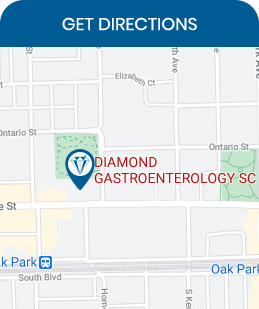Colon Cancer Screening Clinic in Oak Park, IL
Diamond Gastroenterology provides professional colon cancer screening options for the diagnosis of cancer! For more information or to schedule an appointment with us, please feel free to give us a call or do so through our website. We serve patients from Oak Park IL, and surrounding areas.


Additional Services We Offer
▸ Endoscopy
▸ IBS Treatment
▸ Crohn’s Disease
▸ Ulcerative Colitis
▸ Abdominal Pain
▸ Colonoscopy
▸ Rectal Bleeding
▸ Colon Cancer Screening
▸ Procedures
▸ Specialties
Additional Services We Offer
▸ Endoscopy
▸ IBS Treatment
▸ Crohn’s Disease
▸ Ulcerative Colitis
▸ Abdominal Pain
▸ Colonoscopy
▸ Rectal Bleeding
▸ Colon Cancer Screening
▸ Procedures
▸ Specialties





